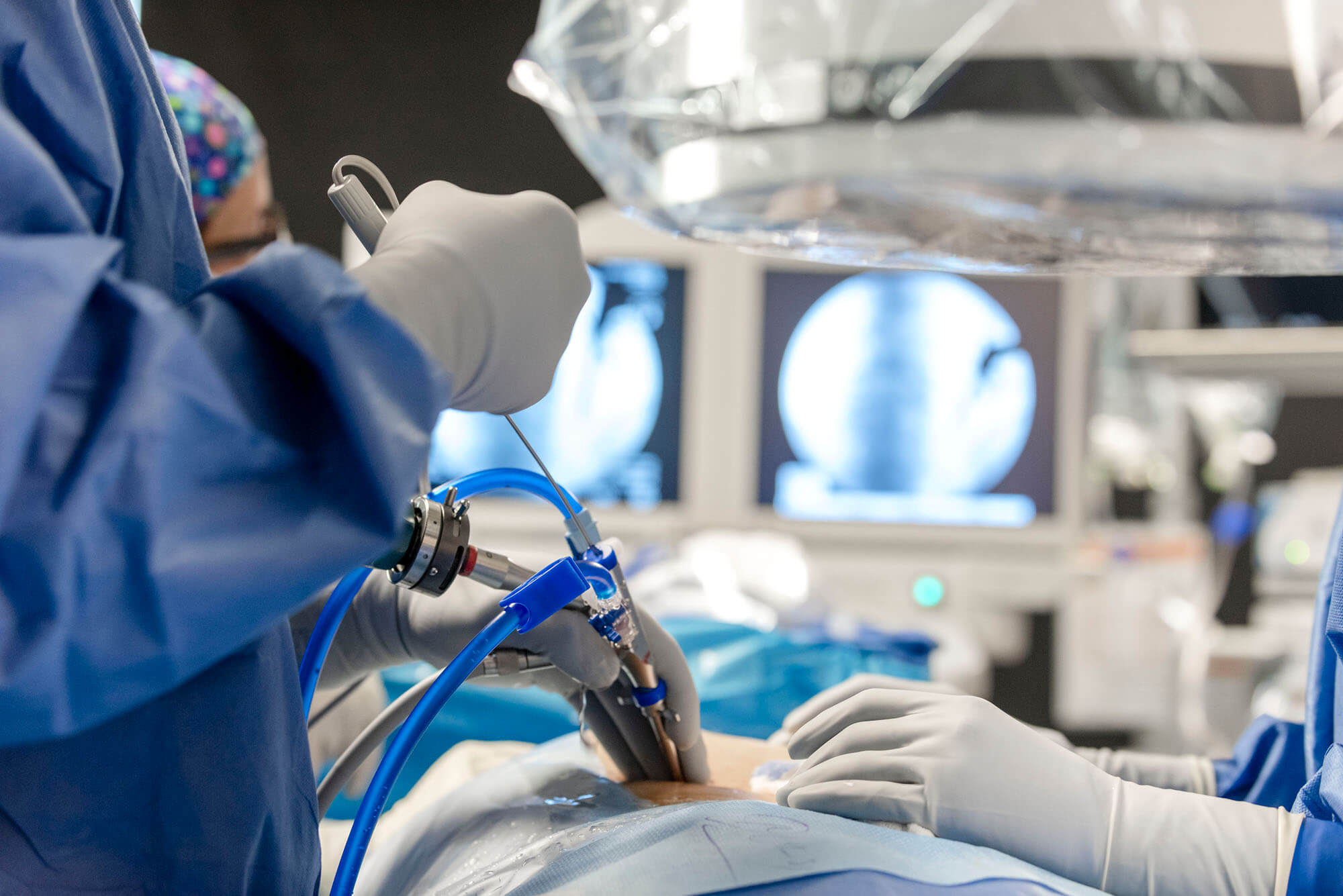Laser Spine Surgery Rises as Popular Alternative for Minimally Invasive Procedures, Insights with Dr. Larry Davidson

Laser spine surgery is revolutionizing the field of spinal care by offering a minimally invasive alternative to traditional open surgery. This cutting-edge approach uses focused laser technology to address a range of spinal conditions, providing patients with faster recovery times, less postoperative pain, and a reduced risk of complications. Dr. Larry Davidson, a leader in spinal surgery, recognizes that as the demand for minimally invasive procedures grows, laser spine surgery is emerging as a popular option for treating conditions like herniated discs, spinal stenosis, and pinched nerves. This approach minimizes trauma to surrounding tissues and reduces overall recovery times.
What Is Laser Spine Surgery?
Laser spine surgery is a form of minimally invasive surgery (MIS) that uses a focused laser beam to remove or shrink damaged tissue, such as disc material or bone spurs, without the need for large incisions. Traditional spine surgeries often involve significant disruption to muscles and surrounding tissues, requiring longer recovery periods and carrying a higher risk of complications. In contrast, laser spine surgery uses a small incision, often less than an inch, through which the surgeon inserts specialized tools and a laser to target the affected area. The precision of the laser allows surgeons to address spinal issues while minimizing tissue damage, resulting in a much less invasive procedure overall.
Benefits of Laser Spine Surgery
Laser spine surgery offers numerous benefits, making it an attractive option for patients seeking effective treatment with minimal disruption to their lives. Its minimally invasive approach requires only small incisions, reducing trauma to surrounding muscles, nerves, and tissues, which leads to less postoperative pain and a quicker recovery compared to traditional open surgery. The reduced tissue damage allows most patients to resume normal activities within weeks rather than months, minimizing downtime. Additionally, laser spine surgery carries a lower risk of complications, such as infections or blood loss, thanks to the smaller incisions and less invasive techniques. Patients also benefit from less scarring, which is a significant consideration for those concerned about the aesthetic impact of surgery. Many procedures can be performed on an outpatient basis, allowing patients to return home the same day, making the experience more convenient and reducing hospital costs.
Conditions Treated by Laser Spine Surgery
Laser spine surgery is effective for treating a variety of spinal conditions, particularly those that involve compressed or damaged tissue. Some common conditions that can be treated with this procedure include:
- Herniated or Bulging Discs: Laser surgery can remove or shrink portions of a herniated or bulging disc, relieving pressure on the nerves and reducing pain.
- Spinal Stenosis: In cases of spinal stenosis, where the spinal canal narrows and compresses the nerves, laser surgery can remove excess tissue or bone spurs that contribute to the narrowing.
- Sciatica: Laser surgery can alleviate sciatica pain by addressing the underlying nerve compression caused by conditions like herniated discs or spinal stenosis.
- Pinched Nerves: The procedure can relieve pressure on nerves that have been compressed by damaged tissue or bone, reducing pain, tingling, and numbness.
How Laser Spine Surgery Compares to Traditional Surgery
Laser spine surgery offers several distinct advantages over traditional open surgery. Traditional open surgery typically requires a large incision and the retraction of muscles and tissues to access the spine, which leads to longer recovery times and more postoperative pain. In contrast, laser surgery is far less invasive, with smaller incisions and minimal disruption to the surrounding tissues.
Traditional surgeries also often require extended hospital stays and recovery periods, whereas laser spine surgery is usually performed on an outpatient basis, with many patients returning home the same day. The reduced need for general anesthesia, combined with fewer risks of complications like infections or excessive bleeding, makes laser spine surgery a safer and more efficient option for many patients.
Additionally, laser spine surgery can target specific areas of the spine with greater precision, which means less damage to healthy tissue and a quicker return to daily activities. The precision of laser technology allows for highly accurate removal of problematic tissue, ensuring that only the damaged areas are treated while preserving the surrounding structures.
Who Is a Candidate for Laser Spine Surgery?
Not all patients are candidates for laser spine surgery, and a thorough evaluation by a spine specialist is necessary to determine if the procedure is appropriate. Ideal candidates are those who have not found relief through conservative treatments, such as physical therapy, medications, or injections, and whose condition can be treated with the precision of laser technology.
Laser spine surgery is most effective for individuals with specific types of spinal issues, such as herniated discs, pinched nerves, or spinal stenosis. However, for more complex conditions like severe spinal deformities or instability, traditional surgical methods may be necessary to achieve the best outcomes.
The Future of Laser Spine Surgery
As technology continues to advance, laser spine surgery is expected to play an even greater role in the treatment of spinal conditions. Ongoing improvements in laser precision and the development of more sophisticated imaging and navigation systems will likely expand the range of conditions that can be treated with this minimally invasive approach. Additionally, as more research supports the benefits of laser spine surgery, it may become a more widely accepted option for patients seeking alternatives to traditional open surgeries.
With its ability to reduce recovery times, minimize pain, and lower the risk of complications, laser spine surgery is set to continue changing the landscape of minimally invasive spinal procedures. Patients will increasingly benefit from the precision, safety, and convenience of this innovative approach to spinal care.
Laser spine surgery is transforming minimally invasive spinal procedures, providing a safer, faster, and more precise option than traditional open surgery. With its ability to treat various spinal conditions—such as herniated discs, spinal stenosis, and pinched nerves—laser surgery offers benefits like quicker recovery, less postoperative pain, and fewer complications. Dr. Larry Davidson recognizes that as technology advances, laser procedures are making spinal surgery more patient-friendly, allowing individuals to recover faster and return to normal activities with minimal disruption.






